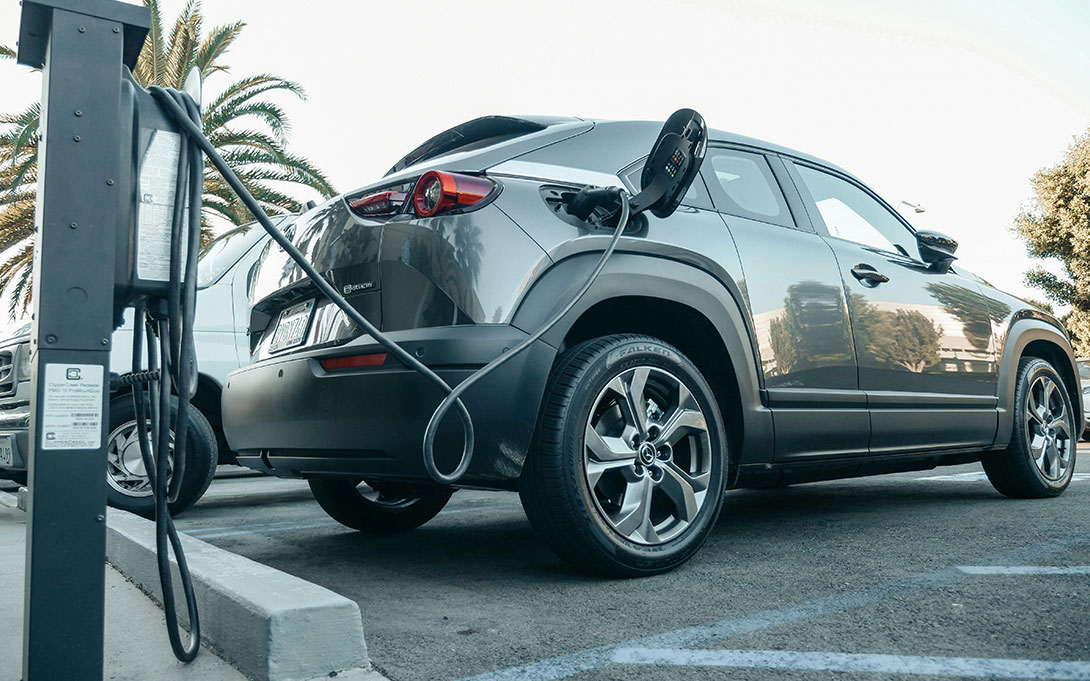
Local officials across Michigan increasingly view electric vehicle infrastructure planning as relevant for their governments, though many cite too few public charging stations and costs associated with adding them as barriers to expansion.
The findings come in the latest Michigan Public Policy Survey conducted by the University of Michigan’s Center for Local, State, and Urban Policy. It presents the views of local government leaders statewide on a range of EV policies and practices as the automotive industry tilts toward electrification and EV use increases.
According to the survey conducted last fall, just less than 40% of local leaders say EV infrastructure planning is somewhat or very relevant, up from 23% who responded similarly in 2019. Just more than a quarter say planning for EVs isn’t relevant in their jurisdictions — a big drop from 40% in 2019.
More than a third of respondents (34%) say their community has too few public charging stations, compared with 29% in 2019. Still, among places that have considered energy policy issues, only 15% believe there are no significant challenges to adding new charging stations in their jurisdictions, while a majority point to costs associated with adding new stations (53%) and a lack of interest among residents (51%) as barriers to local expansion.
The increasing interest over the past few years reflects industry and consumer shifts. Although only about 33,000 EVs were registered in Michigan as of 2022, that represents an 89% increase year-over-year, and electric and hybrid vehicles are expected to constitute just more than half of all sales by 2030, according to the report.
The researchers also note that millions of dollars in state and federal funds have been devoted to bolstering the state’s EV infrastructure, and private companies have made significant investments regarding EVs in Michigan.
Still, there is rising uncertainty around consumer demand, and many respondents said the costs that would fall to their jurisdictions for installing charging stations and related infrastructure were still too high. In particular, leaders in rural areas were more likely to express concerns about cost and lack of demand.
The urban-rural divide is reflected in the findings: Village and township leaders were less likely to say planning for EVs is very relevant for their local governments (14% and 10%, respectively) than their counterparts leading cities and counties (32% and 30%).
“The transition toward electric vehicles is well underway, as we see here in the significant growth in the number of local governments beginning to plan for EV infrastructure needs, such as publicly accessible charging stations,” said Tom Ivacko, executive director of CLOSUP. “Seeing this growth first in urban areas is not surprising, but it will be helpful to track how this spreads across the state in the coming years as more EVs hit the roads.”
Debra Horner, senior program manager for the survey, said there is a need to balance capital commitments with community concerns.
“Many larger cities and counties are incorporating EVs into their local policies in a number of other ways, such as purchasing EVs for their jurisdiction’s vehicle fleet or adding EV policies to their master plan,” Horner said. “But even with recent huge commitments of state and federal funding to promote EV infrastructure, a majority of local officials in Michigan communities of all sizes still see the costs of development as a barrier.”
CLOSUP, which is part of the Gerald R. Ford School of Public Policy, surveyed county, city, township and village officials from 1,315 jurisdictions across the state. The study was funded by the Michigan Department of Environment, Great Lakes, and Energy, to help the state better understand local government perspectives around EVs and related infrastructure.
Read the report: Michigan Public Policy Survey
Written by Jeff Karoub, Michigan News
